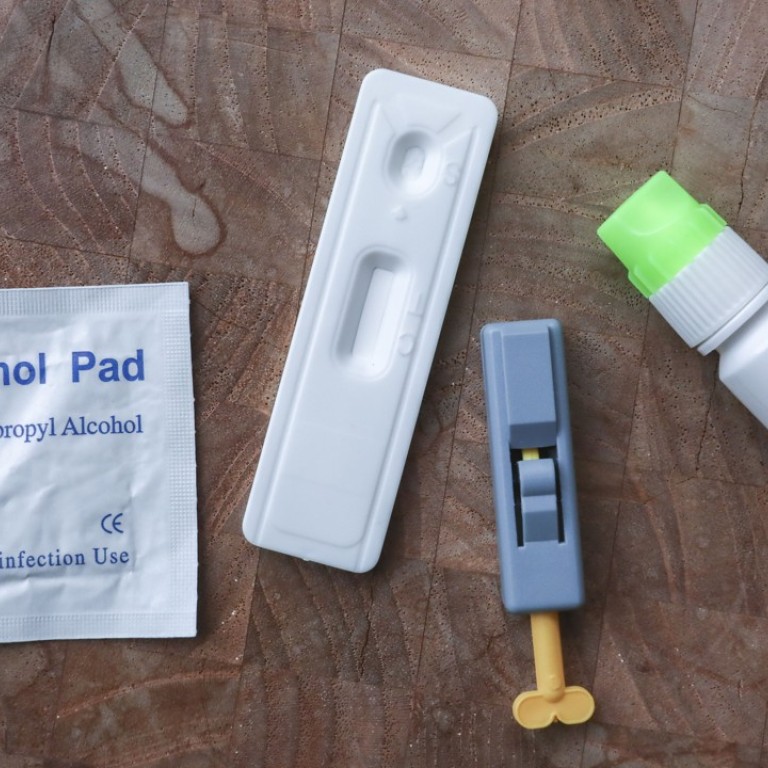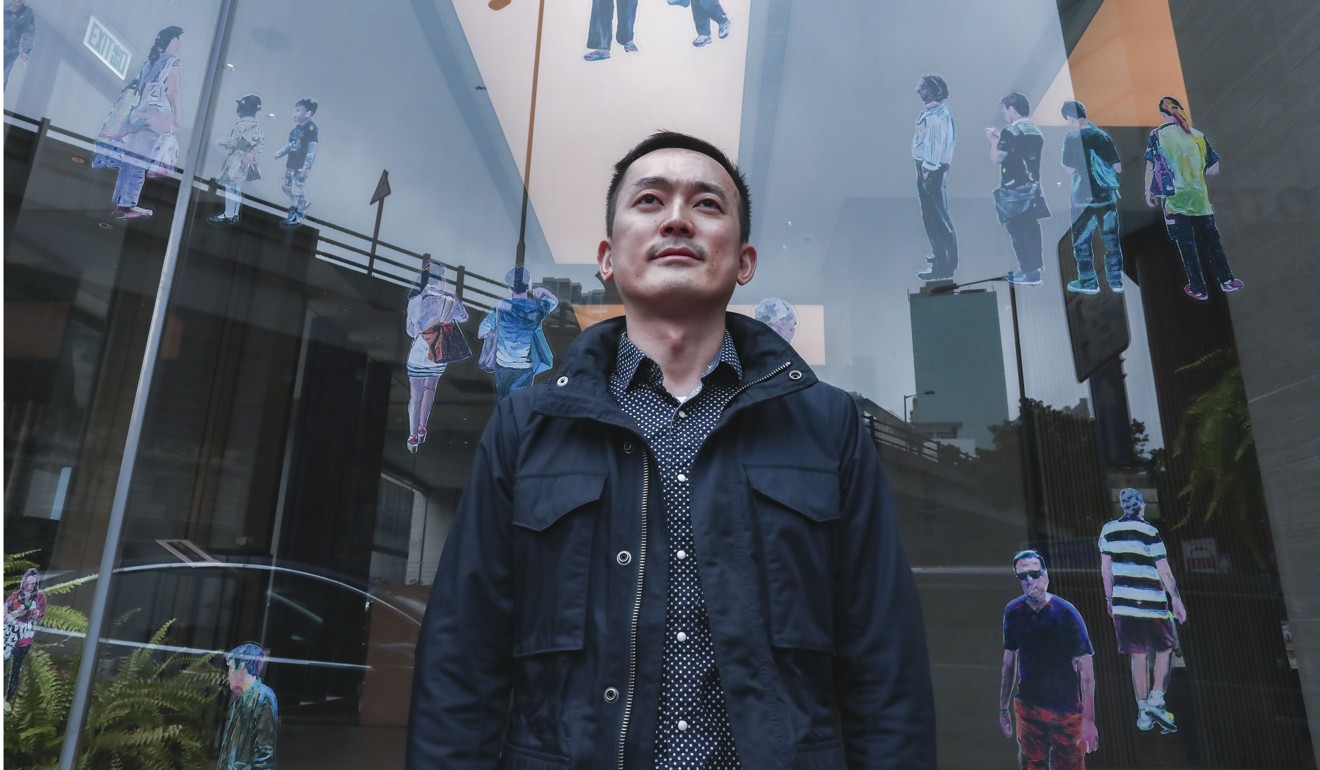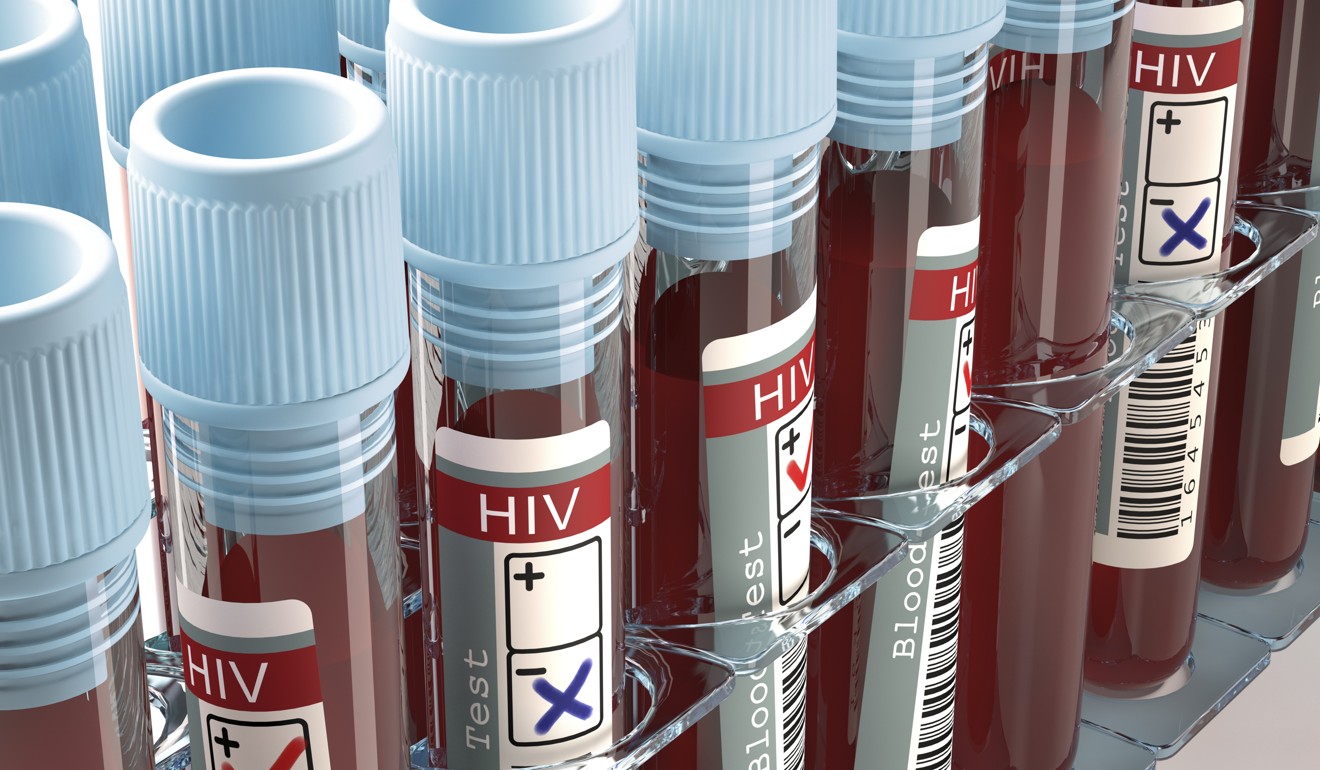
Hong Kong could offer HIV test kit collection at convenience stores for privacy, Taiwan official says
A finger prick or oral fluid using a self-testing kit can determine if a person is infected in 20 to 30 minutes and help reach more of those who are undiagnosed
Hong Kong could follow Taiwan by distributing HIV self-testing kits at convenience stores to address privacy concerns, a Taiwanese health official has said, a move that may raise testing rates for the virus that causes Aids.
The proposal by Dr Huang Shih-tse, a medical officer from Taiwan’s Centres for Disease Control, is an attempt to tackle the fear of identity exposure which he said remained a major obstacle in getting people to come forward for testing.
“HIV self-testing kits at convenience stores could ease worries about privacy,” Huang said in an interview with the Post on a recent visit to Hong Kong. “People worry others will know they are getting tested.”

A finger prick or oral fluid using a self-testing kit can determine if a person is infected in 20 to 30 minutes. The World Health Organisation says the kits can help reach more people with undiagnosed HIV.
Last year Taiwan launched a trial scheme under which self-testing kits were delivered to convenience stores for collection after people ordered online from the island’s health authorities at a cost of NT$200 (HK$53). The fee was refundable if the results were reported back to the Centres for Disease Control.
More than 5,000 convenience stores on the island were used as pickup points. But walk-in purchases were not allowed.
Breakthrough HKUST-led research on mapping of HIV weak spots paves way for vaccine
The kits have also been available from vending machines and NGOs since HIV self-testing was launched on the island in 2016.
The idea to include convenience stores emerged from Hualien in eastern Taiwan where the population is more sparsely distributed and health care services are harder to reach.
Huang said convenience stores provided more privacy than home delivery.

“At convenience stores people can’t identify what you are collecting as the packaging is that of an ordinary parcel,” he said.
The number of self-testing kits delivered in Taiwan increased from about 4,800 in 2016 to over 17,000 last year after the inclusion of convenience stores. More than 40 per cent of kits sent out last year were distributed from these stores.
The trial scheme has now ended and Taiwanese officials are assessing whether to continue it.
Huang said Hong Kong was well placed to copy the programme.
Hong Kong government cuts cash for HIV prevention, just as infections set to surge
There are more than 1,300 branches in Hong Kong of three major convenience store chains, 7-Eleven, Circle K and VanGo.
Hongkongers hoping to obtain HIV self-testing kits currently have to purchase them from selected pharmacies or online platforms for between HK$200 and HK$400.
Some online outlets offered the option of delivery through convenience stores, but many high-risk individuals were not aware of this option because of poor publicity, a patients’ group said.

“Most people just purchase directly from pharmacies or the internet,” said Duncan Lam Chun-chung, executive director of the Positive Outlook Community, an HIV patient concern group.
Kits ordered online and sent to homes would run the risk of the parcel being opened by someone else, he said.
Lam also said convenience stores could be a distribution avenue, but better support services would be needed for those getting tested.
A new drug to treat HIV just got approved in the US – and it could shake up a US$22 billion market
“There should be a 24-hour support hotline to tell infected patients basic knowledge about HIV and treatment,” Lam said. “People usually have the greatest need at the moment they are diagnosed.”
A spokesman for Aids Concern, a local NGO, said the group supported the distribution of kits through convenience stores. But he added that there should always be ways to locate people undergoing self-testing.
Terry Poon, managing director of Chi Shing Biotech, a local company manufacturing HIV self-testing kits, said the city’s testing rate could be increased if the product were sold in stores.
According to government data for 2016, 58.5 per cent of surveyed men who had sex with men had received HIV testing in the prior year. That was slightly lower than the 60.8 per cent in 2015.
Poon said his company failed to persuade a major convenience store chain three years ago to sell their kits.
“That chain said they were worried that consumers of our products would affect their image,” he said.
The social stigma surrounding HIV needed to be tackled further before kits could be more widely distributed, he added.
“If there is better education teaching people that HIV self-testing is something normal, I believe major convenience stores won’t reject these products.”
Chinese university offers HIV test kits via vending machine
A spokesman for 7-Eleven, the city’s largest convenience store group, said they welcomed suggestions on items to sell and would consider every idea carefully.
A spokesman for Hong Kong’s Department of Health said there was no specific legislation to regulate the import, distribution, sale or use of medical devices, including HIV self-testing kits.
The Hong Kong Advisory Council on Aids, in a five-year plan for HIV prevention released last year, urged NGOs and health care workers to improve the modes of delivery for self-testing and provide support to those testing positive.
A total of 681 newly diagnosed HIV cases were reported to the Centre for Health Protection last year, a slight decrease from 692 in 2016.
The city has recorded 9,091 HIV cases since 1984, when the reporting mechanism began.

